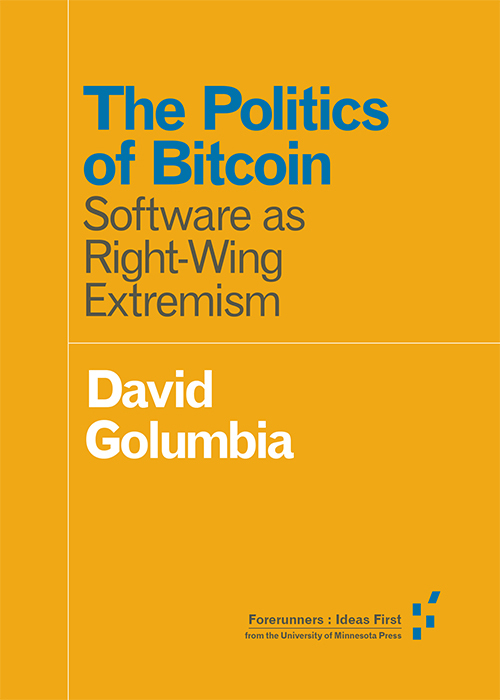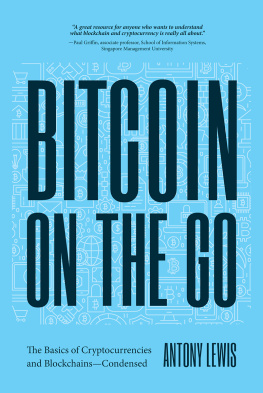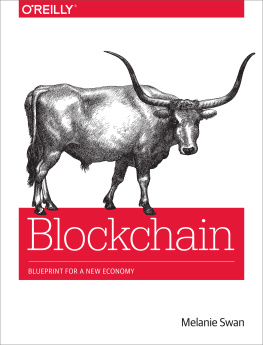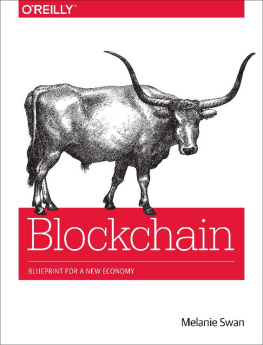
Forerunners: Ideas First from the University of Minnesota Press
Original e-works to spark new scholarship
F ORERUNNERS IS A thought-in-process series of breakthrough digital works. Written between fresh ideas and finished books, Forerunners draws on scholarly work initiated in notable blogs, social media, conference plenaries, journal articles, and the synergy of academic exchange. This is gray literature publishing: where intense thinking, change, and speculation take place in scholarship.
Ian Bogost
The Geeks Chihuahua: Living with Apple
Andrew Culp
Dark Deleuze
Grant Farred
Martin Heidegger Saved My Life
David Golumbia
The Politics of Bitcoin: Software as Right-Wing Extremism
Gary Hall
The Uberfication of the University
John Hartigan
Aesops Anthropology: A Multispecies Approach
Mark Jarzombek
Digital Stockholm Syndrome in the Post-Ontological Age
Nicholas A. Knouf
How Noise Matters to Finance
Akira Mizuta Lippit
Cinema without Reflection: Jacques Derridas Echopoiesis and Narcissism Adrift
Reinhold Martin
Mediators: Aesthetics, Politics, and the City
Shannon Mattern
Deep Mapping the Media City
Jussi Parikka
The Anthrobscene
Steven Shaviro
No Speed Limit: Three Essays on Accelerationism
Sharon Sliwinski
Mandelas Dark Years: A Political Theory of Dreaming
The Politics of Bitcoin
The Politics of Bitcoin
Software as Right-Wing Extremism
David Golumbia
University of Minnesota Press
Minneapolis
The Politics of Bitcoin: Software as Right-Wing Extremism by David Golumbia is licensed under a Creative Commons Attribution-NonCommercial-NoDerivatives 4.0 International License.
All rights reserved. No part of this publication may be reproduced, stored in a retrieval system, or transmitted, in any form or by any means, electronic, mechanical, photocopying, recording, or otherwise, without the prior written permission of the publisher.
Published by the University of Minnesota Press
111 Third Avenue South, Suite 290
Minneapolis, MN 554012520
http://www.upress.umn.edu
The University of Minnesota is an equal-opportunity educator and employer.
Contents
I N THE EARLY 2010S, and then especially throughout 2013, observers of digital culture began to read more and more about a new form of digital payment called Bitcoin. Although any number of digital payment systems had already emergedfrom relatively straightforward tools for money transfer such as new Western Union services, online bill paying, and PayPal, to more exotic systems such as Liberty Reserve (Langlois 2013), beenz (Richardson 2001), and forms of digital gold like E-Gold (Zetter 2009)Bitcoin was said to be different. Its difference stemmed from at least two sources: first, that it was based on a relatively new form of cryptographic software technology called a blockchain, and second, that throughout 2013 Bitcoin had skyrocketed in its value relative to official world currencies like the U.S. dollar. At the end of 2012 one could buy a single Bitcoin for around US$13. By May 2013, that one Bitcoin was worth upward of US$100, nearly an 800 percent gain for those fortunate enough to have held it for five months. In November and December of 2013 Bitcoins value briefly exceeded US$1,200 (History of Bitcoin). In just under a year investors who timed their buying and selling correctly could have made around 8,000 percent in profits, far exceeding the performance of most, perhaps even all, traditional investments. Those who had bought or mined Bitcoin earlier in its existence (the first coins were created in 2009 and started out as essentially worthless) could and well may have realized gains that dwarf even these. This remarkable performance thrust Bitcoin into the public eye, eventually attracting numerous start-up projects, venture capitalists, and investors.
By far the majority of interest in Bitcoin came from technologists and those who follow and admire the work of technologists. To those of us who were watching Bitcoin with an eye toward politics and economics, though, something far more striking than Bitcoins explosive rise in value became apparent: in the name of this new technology, extremist ideas were gaining far more traction than they previously had outside of the extremist literature to which they had largely been confined. Dogma propagated almost exclusively by far-right groups like the Liberty League, the John Birch Society, the militia movement, and the Tea Party, conspiracy theorists like Alex Jones and David Icke, and to a lesser extent rightist outlets like the Fox media group and some right-wing politicians, was now being repeated by many who seemed not to know the origin of the ideas, or the functions of those ideas in contemporary politics.
These ideas are not simply heterodox or contrarian: they are pieces of a holistic worldview that has been deliberately developed and promulgated by right-wing ideologues. To anyone aware of the history of right-wing thought in the United States and Europe, they are shockingly familiar: that central banking such as that practiced by the U.S. Federal Reserve is a deliberate plot to steal value from the people to whom it actually belongs; that the world monetary system is on the verge of imminent collapse due to central banking policies, especially fractional reserve banking; that hard currencies such as gold provide meaningful protection against that purported collapse; that inflation is a plot to steal money from the masses and hand it over to a shadowy cabal of elites who operate behind the scenes; and more generally that the governmental and corporate leaders and wealthy individuals we all know are controlled by those same elites.
Understanding how Bitcoin comes to embody these extremist ideas requires situating it within two broader analytical frameworks. The first of these is the phenomenon that scholars call cyberlibertarianism. The central texts describing cyberlibertarianism are Barbrook and Cameron (1996) and Winner (1997); for more recent accounts see Turner (2008) as well as Golumbia (2013b, 2013c, in preparation). In its most basic and limited form, cyberlibertarianism is sometimes summarized as the principle that governments should not regulate the internet (Malcolm 2013). This belief was articulated with particular force in the 1996 Declaration of the Independence of Cyberspace written by the libertarian activist, Grateful Dead lyricist, and Electronic Frontier Foundation founder (EFF is a leading digital rights and technology industry advocacy organization) John Perry Barlow, which declared that governments of the industrial world are not welcome in and have no sovereignty over the digital realm.
In practice, opposition to government regulation of the internet is best understood as a core (and in important ways vague) tenet, around which circulate greater and greater claims for the freedom created by digital technology. At its most expansive, cyberlibertarianism can be thought of as something like a belief according to which freedom will emerge inherently from the increasing development of digital technology, and therefore entails that efforts to interfere with or regulate that development must be antithetical to freedomalthough what freedom means in this context is much less clear than it may seem. As Winner (1997, 1415) puts it, to be a cyberlibertarian is to believe that the dynamism of digital technology is our true destiny. There is no time to pause, reflect or ask for more influence in shaping these developments.... In the writings of cyberlibertarians those able to rise to the challenge are the champions of the coming millennium. The rest are fated to languish in the dust.












